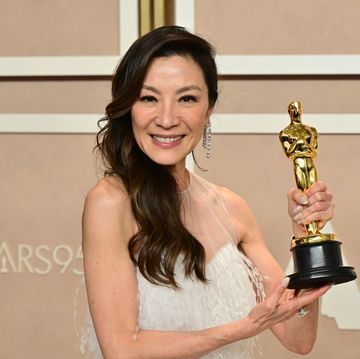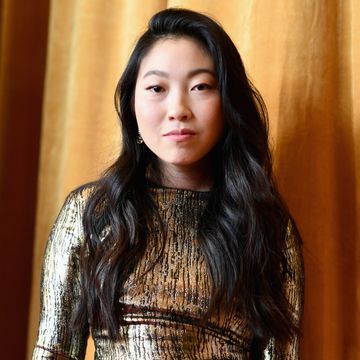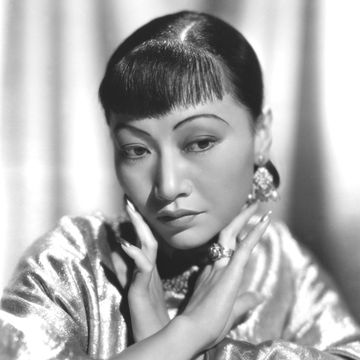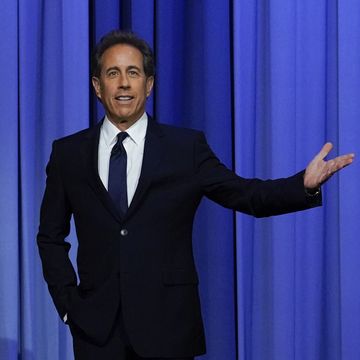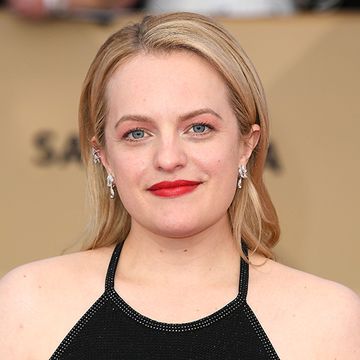The fiery redheaded performer hailing from Jamestown, New York, and the charming, Cuba-raised actor and musician were an unconventional fit for the buttoned-up Hollywood of the 1940s and 1950s. But that didn’t stop Lucille Ball and Desi Arnaz from becoming America’s favorite on- and off-screen couple.
Their union would go on to produce two children, as well as countless hours of groundbreaking television. They would help usher in the era of syndicated broadcasting and their production company, Desilu Pictures, would back such influential series as The Dick Van Dyke Show, Mission: Impossible and Star Trek.
Though marriage for the couple would last only two decades, a love and mutual respect remained between the stars until death. “They had a great divorce,” daughter Lucie Arnaz recalled to Closer Weekly in 2019. “They had a very successful divorce. It was fantastic. … If their parents can’t get along and that happens, then kids should be so lucky to have a divorce like my mom and dad because they were kind. They never said bad words about each other and they stayed friends until the day they died. It was a fantastic romance that got even more passionate and friendlier after they were not married to each other anymore.”
People made bets on how long Ball and Arnaz's marriage would last
Arnaz and Ball met in 1940 on the set of the RKO movie Too Many Girls. He was a 23-year-old bandleader whose family had fled Cuba in 1933. At 28, Ball was a seasoned studio contract player whose star power had never been fit to the right vehicle. Their offscreen chemistry was evident and they had eloped by year’s end. “You could tell the sparks were flying with Lucy,” said Eddie Bracken, a co-star from the film. “It happened so fast it seemed it wouldn’t last. Everybody on the set made bets about how long it would last.”
Tumultuous from the very beginning, Ball first sought to exit the marriage in 1944 when she filed for divorce, reportedly over Arnaz’s infidelities and heavy drinking. His touring schedule required extended absences from his new wife. When at home his performances would keep Arnaz away into the early hours of the morning, while Ball’s studio schedule often meant she was preparing to go to work at the time he returned home.
After talking it through they reconciled. Endeavoring to spend more time together, Ball and Arnaz searched for projects that would allow them to team up on a professional as well as personal level. That project would ultimately be I Love Lucy, the Emmy-winning sitcom that would run from 1951 to 1957, changing the television landscape forever and making the couple household names.
Ball insisted that Arnaz played her TV husband
CBS wanted Ball to recreate on television the success she had achieved on radio with My Favorite Husband (1947–1950), a series about a ditzy newlywed and her madcap adventures. But the network initially balked when Ball demanded any show she would appear in must also include real-life husband Arnaz. Executives at CBS were reportedly worried that American audiences wouldn’t accept Arnaz’s strong accent.
Sticking to their demands, Ball and Arnaz opted to take a similar-themed, Vaudeville-style stage show on the road instead, much to the delight of theater audiences. The live show a success, CBS relented and Ball and Arnaz went on to create and star in I Love Lucy, a weekly sitcom about a young couple, Lucy and Ricky Ricardo, and their friends and neighbors Fred (William Frawley) and Ethel (Vivian Vance) Mertz. Often taking story cues from their own lives, the onscreen appeal of the couple and Ball’s comedic stylings propelled the series to become the No. 1 show in America four years running, then number two and number three respectively over its six-year run.
As the couple prepared to launch the show into American homes, Ball gave birth to the couple’s only daughter, Lucie Arnaz, in 1951. Two years later, as I Love Lucy was riding high atop the ratings, their only son, Desi Arnaz Jr., would appear in utero in the series when Ball became one of the first pregnant women ever to appear on primetime – a shock in an era where Lucy and Ricky were depicted as sleeping in separate beds and the word “pregnant” was deemed by the network to be too distasteful for primetime audiences. Ball gave birth to her son on January 19, 1953, the same day her character gave birth on the series.
Ball believed it 'would be better for us not to be together'
Pregnancy and children were things Ball had longed for, with the actress reportedly suffering several miscarriages before conceiving daughter Lucie. But as audiences tuned in each week to witness her latest, often outrageous adventures, Ball’s marriage to Arnaz was under strain. He was working 14-hour days as their Hollywood careers skyrocketed, but at home, the stress played out as verbal sparring and accusations of further infidelity by Arnaz. But like the series itself, in which Lucy and Ricky would make up just before the credits rolled, so too did Ball and Arnaz find common ground in their relationship time and time again.
At one point during their marriage, “the magazine Confidential came out with a story saying Desi was a womanizer,” recalls Charles Pomerantz, Ball’s longtime publicist, according to People. “I gave an advance copy to Desi, and Lucy said, ‘I want to read this story.’ It was during a rehearsal day, and she went into her dressing room. Everybody was frozen on the set. She finally came out, tossed the magazine to Desi and said, ‘Oh, hell, I could tell them worse than that.’”
But Arnaz’s drinking and philandering continued and the couple divorced in 1960. “It got so bad that I thought it would be better for us not to be together,” Ball said in court.
The pair never 'got over' their split and remained friends
Though now apart, they continued to work together at Desilu. Two years following their divorce, as Ball readied herself to return to weekly television with The Lucy Show, Arnaz was struggling with the pressures of running Desilu. In 1962 Ball paid Arnaz a reported $2.5 million for his company shares and became the first female CEO of a major Hollywood production studio, steering Desilu to greater success before selling the company in 1967 to Gulf + Western/Paramount for $17.5 million.
Both would go on to remarry: Ball to comedian Gary Morton in 1962 and Arnaz to Edith Hirsch in 1963. Arnaz died December 2, 1986, at age 69 from lung cancer. Ball passed away three years later on April 26 due to an aortic rupture. But their love and respect for each endured while alive, and can be still be seen and appreciated in reruns of I Love Lucy.
“Maybe I’m the romantic, but there was a great, great love there, there really was,” I Love Lucy director William Asher told People. “Desi was very unhappy about the breakup, and I think she was too. I don’t think either one of them ever got over it.”





